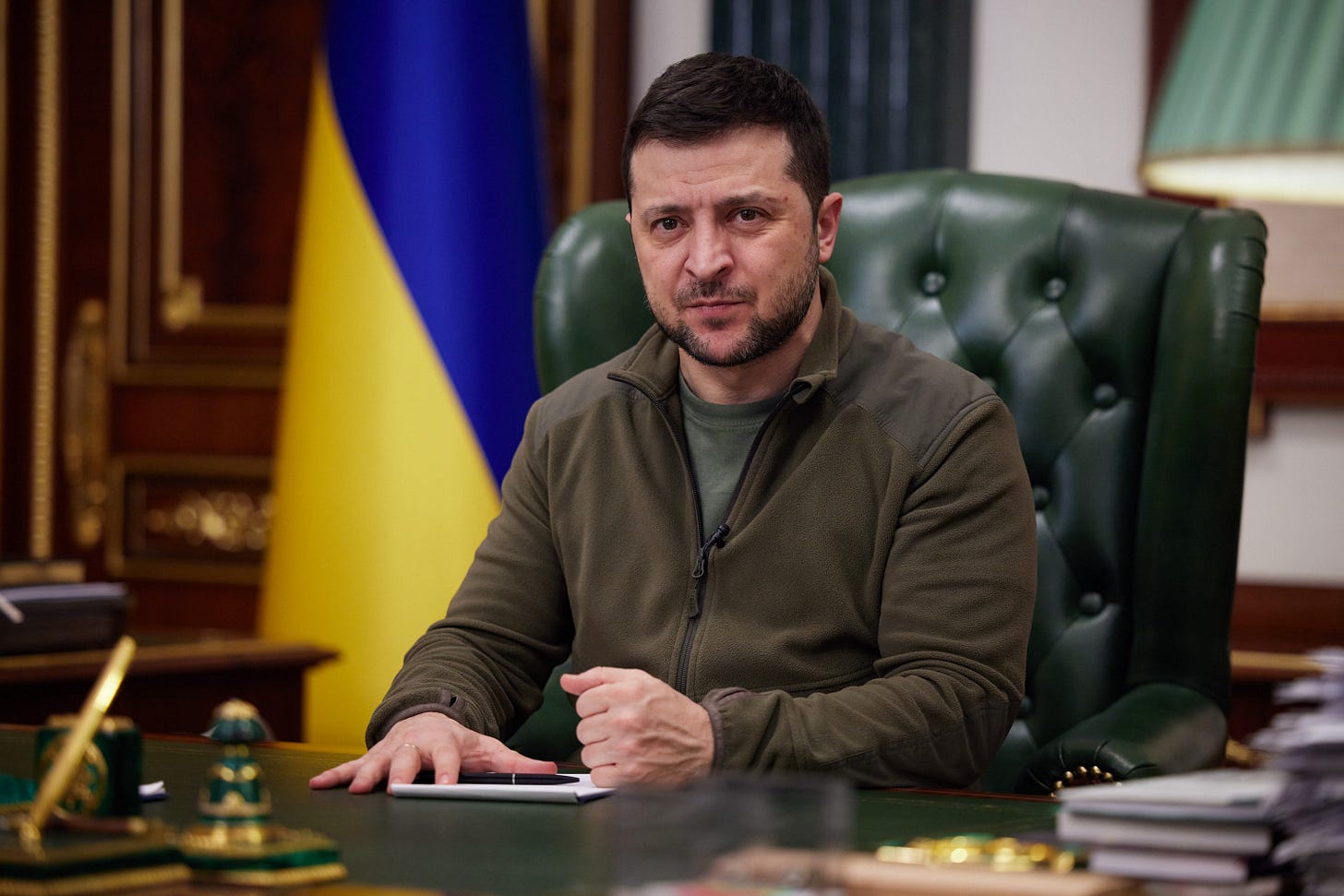When Power Arises from Leadership
Thrust into the world spotlight, President Zelensky generates immense influence through communication.
NEWTOWN—The war in Ukraine has been a war of power.
The Russian military far outnumbers the Ukrainian one. When the invasion began, few expected it to last beyond a few days. On paper, the power belonged to Russia.
Instead, Ukraine has demonstrated its power. Both in its on-the-ground, military resistance to a superior force and in the way that its inspiring leader has rallied the world to his country’s side.
President Volodymyr Zelensky has amassed power through his leadership, not because of his position.
The world is drawn to him.
Only a few years earlier, Zelensky, then a comedic actor, could have quipped, “I’m not a president. I just play one on TV.” Zelensky starred in a show about a schoolteacher becoming the leader of Ukraine.
The moment Russia invaded Ukraine, Zelensky shed any vestiges of comedy or of acting.
Within that first day, the actor-president became the president. The transformation is astonishing.
He mobilized his country to mount a fierce and spirited defense. People across the connected world watched him speak, learned his name, and spoke of him with awe and admiration. He had become a symbol. And as a symbol, he garnered the power to influence and inspire.
Fast forward to the 13th day of the invasion, and Zelensky was lecturing the Parliament of the United Kingdom on greatness.
“In 13 days of the Russian invasion, 50 children were killed. 50 great martyrs. This is dreadful! This is emptiness. Instead of 50 universes that could live, they took them away. They just took them away,” Zelensky said. “Ukraine did not strive for that. It did not seek greatness. But it became great during these days of this war.”
He ended by reminding the people of Great Britain of their own power, echoing former Prime Minister Winston Churchill, “Do what the greatness of your state and your people obliges to.”


Zelensky has harnessed a fundamental idea that leaders often forget. Authenticity is everything. True leaders stand in their own skin and project confidence. War has forced this on Zelensky. He has no time to grapple with things like image, polling, or word choice for speeches.
He has been forced to grapple with the fundamental question of simply being.
“The question for us now is to be or not to be,” Zelensky said in that same speech to British Parliament. “I can give you a definitive answer: It’s definitely to be.”
In referencing the famous Shakespearean line from Hamlet, Zelensky tapped into a global consciousness. As Maureen Dowd, columnist for The New York Times, points out, “What made the Ukrainian president’s delivery so powerful was that the world is caught up in the existential questions raised by the moody prince of Denmark.”
That is, will Ukraine exist?
All of this has occurred from Zelensky’s communication. It has occurred through his verbal communication and through his non-verbal communication—through what he says and what he does.
His speeches have been broadcast across the world. He gives multiple speeches each day, addressing Ukrainians, Russian soldiers, and members of European and North American governments.
To Ukrainians: We will win. We will protect our freedom.
To Russian soldiers: Lay down your weapons. This is not your fight.
To governments: Close the skies.
His speeches have been so emotional that two translators have choked up while translating his words. One translator was so overcome that she could not continue.
His focused messaging has had an impact. Ukrainians have mounted fierce resistance. Entire Russian units have laid down their weapons. NATO countries debate getting involved, with President Biden announcing yesterday that he will travel to a summit next week.
Zelensky’s words have only been eclipsed by his actions. Or perhaps, more accurately, his lack of action.
Zelensky has not fled the capital, Kyiv. His wife and two small children remain in Ukraine. He posts images and video to social media from the streets with fellow government officials and with soldiers. He proves to his country and to the world that he will stay. It seems impossible to question his resolve.
He broadcasts from his office in a military-green t-shirt that has become his uniform.
From his March 7 address,
Now I will say one thing: I stay here.
I stay in Kyiv.
On Bankova Street.
I’m not hiding.
And I'm not afraid of anyone.
As much as it takes to win this Patriotic War of ours.
Zelensky reminds us daily that power does not necessarily originate from leadership.
Instead, it lies in words and in actions, waiting to be harnessed.



